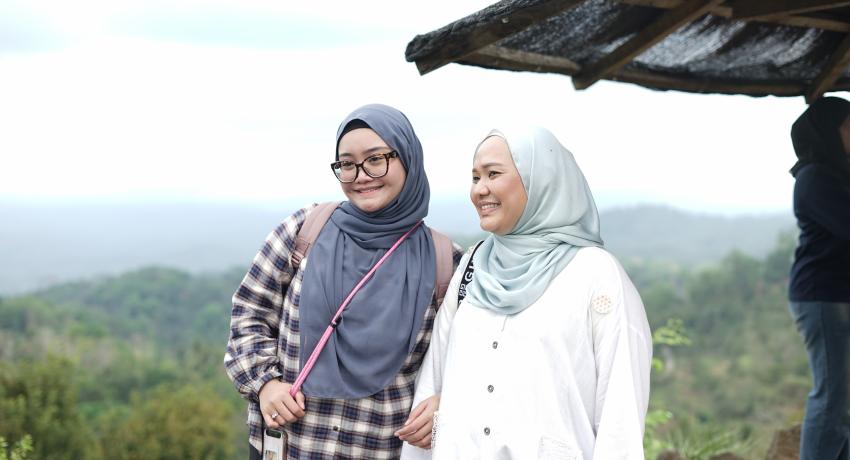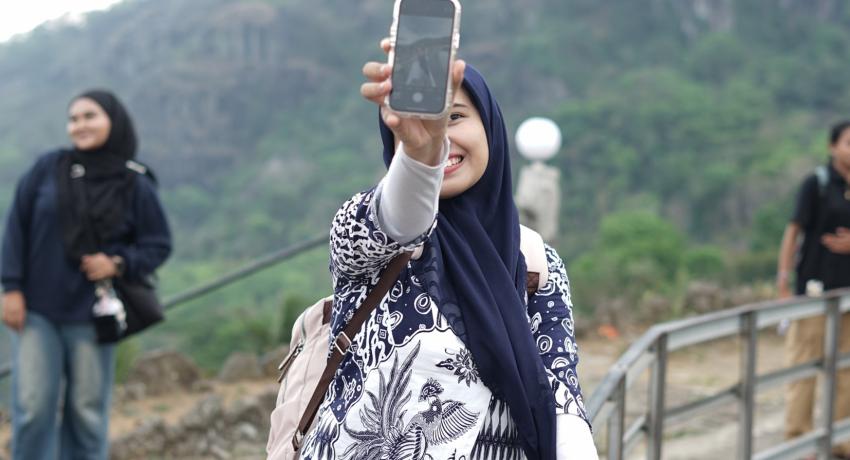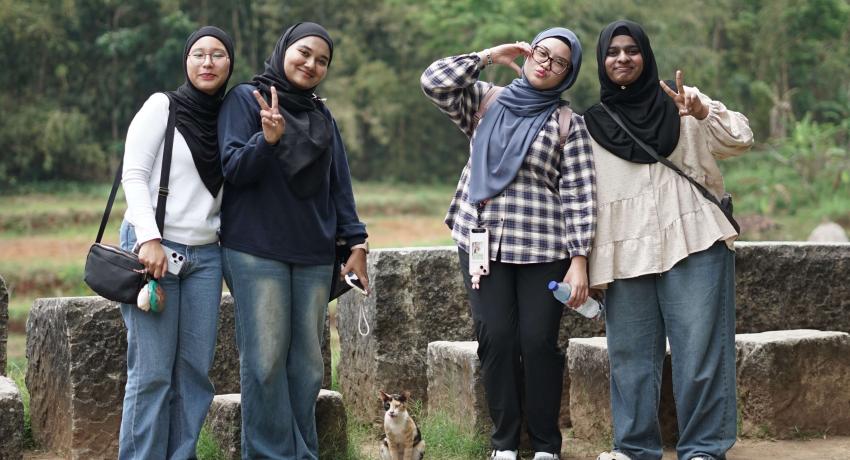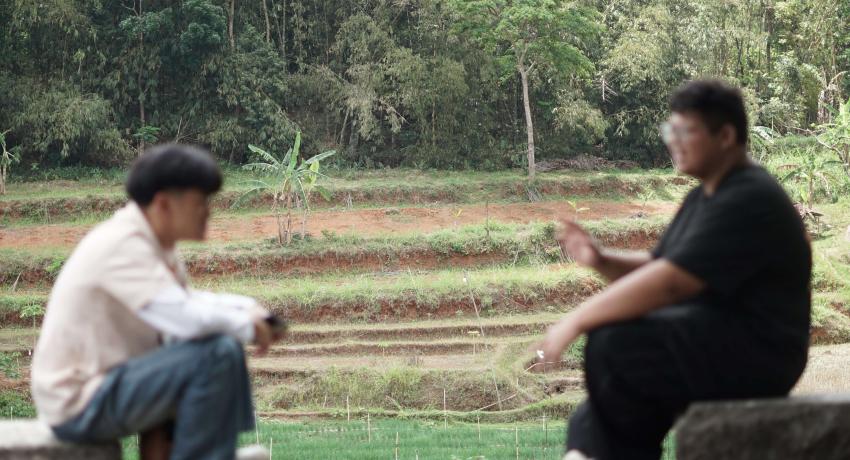Yogyakarta, 19 September 2025 - Universitas Negeri Yogyakarta (UNY) hosted an Overseas Education and Learning Programme (OELP) demonstrating UNY's commitment to fostering cross-cultural educational exchanges. This commitment supports SDG 4: Quality Education and SDG 11: Sustainable Cities and Communities. One of the activities in the programme brought 13 students from NYP's School of Health & Social Sciences for an immersive geological and environmental education experience at Embung Nglanggeran, one of Yogyakarta's premier sustainable tourism destinations.
During their educational visit, the NYP students immersed themselves in both the natural and cultural aspects of the destination. These students fully embrace the 'learning through experience' approach that characterizes quality international education programmes. "The views are very breathtaking and unique geological formations top it all," noted one student. The students actively explored the embung's elevated position at 495 meters above sea level, offering spectacular landscape while observing the remarkable ancient volcanic formations that define the region's geological heritage. Beyond the geological learning experience, students also tried some local culture by trying street food and interacting with community members. These demonstrate the holistic educational approach that connects academic learning with cultural understanding. The programme successfully engaged all 13 participating students in hands-on geological education, contributing to SDG 4 (Quality Education) through innovative international learning experiences and SDG 11 (Sustainable Cities and Communities) by showcasing community-based sustainable tourism models that balance environmental conservation with economic development. The educational impact extends beyond individual learning, as students gain insights into how local communities can successfully manage natural resources while creating sustainable economic opportunities through geotourism.
During their educational visit, the NYP students immersed themselves in both the natural and cultural aspects of the destination. These students fully embrace the 'learning through experience' approach that characterizes quality international education programmes. "The views are very breathtaking and unique geological formations top it all," noted one student. The students actively explored the embung's elevated position at 495 meters above sea level, offering spectacular landscape while observing the remarkable ancient volcanic formations that define the region's geological heritage. Beyond the geological learning experience, students also tried some local culture by trying street food and interacting with community members. These demonstrate the holistic educational approach that connects academic learning with cultural understanding. The programme successfully engaged all 13 participating students in hands-on geological education, contributing to SDG 4 (Quality Education) through innovative international learning experiences and SDG 11 (Sustainable Cities and Communities) by showcasing community-based sustainable tourism models that balance environmental conservation with economic development. The educational impact extends beyond individual learning, as students gain insights into how local communities can successfully manage natural resources while creating sustainable economic opportunities through geotourism.
As part of UNY's ongoing commitment this programme demonstrates the university's dedication to providing transformative learning experiences that prepare globally-minded graduates. UNY continues to strengthen partnerships with international institutions like Nanyang Polytechnic, creating meaningful educational exchanges that combine academic excellence with real-world sustainability applications, fostering the next generation of leaders equipped to address global environmental and social challenges.








